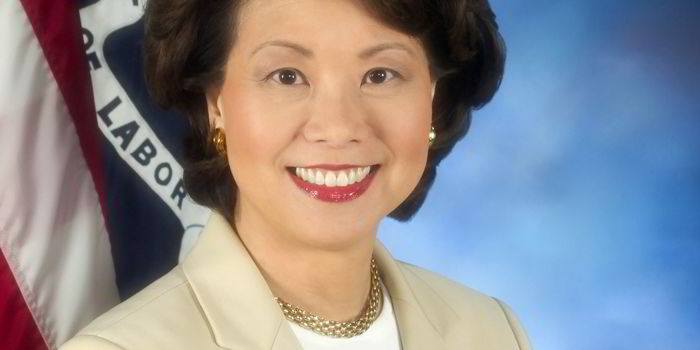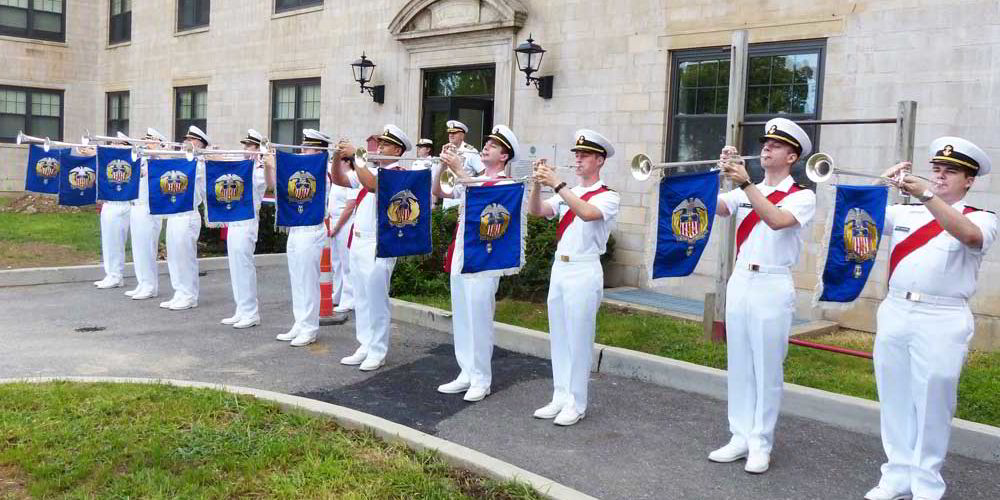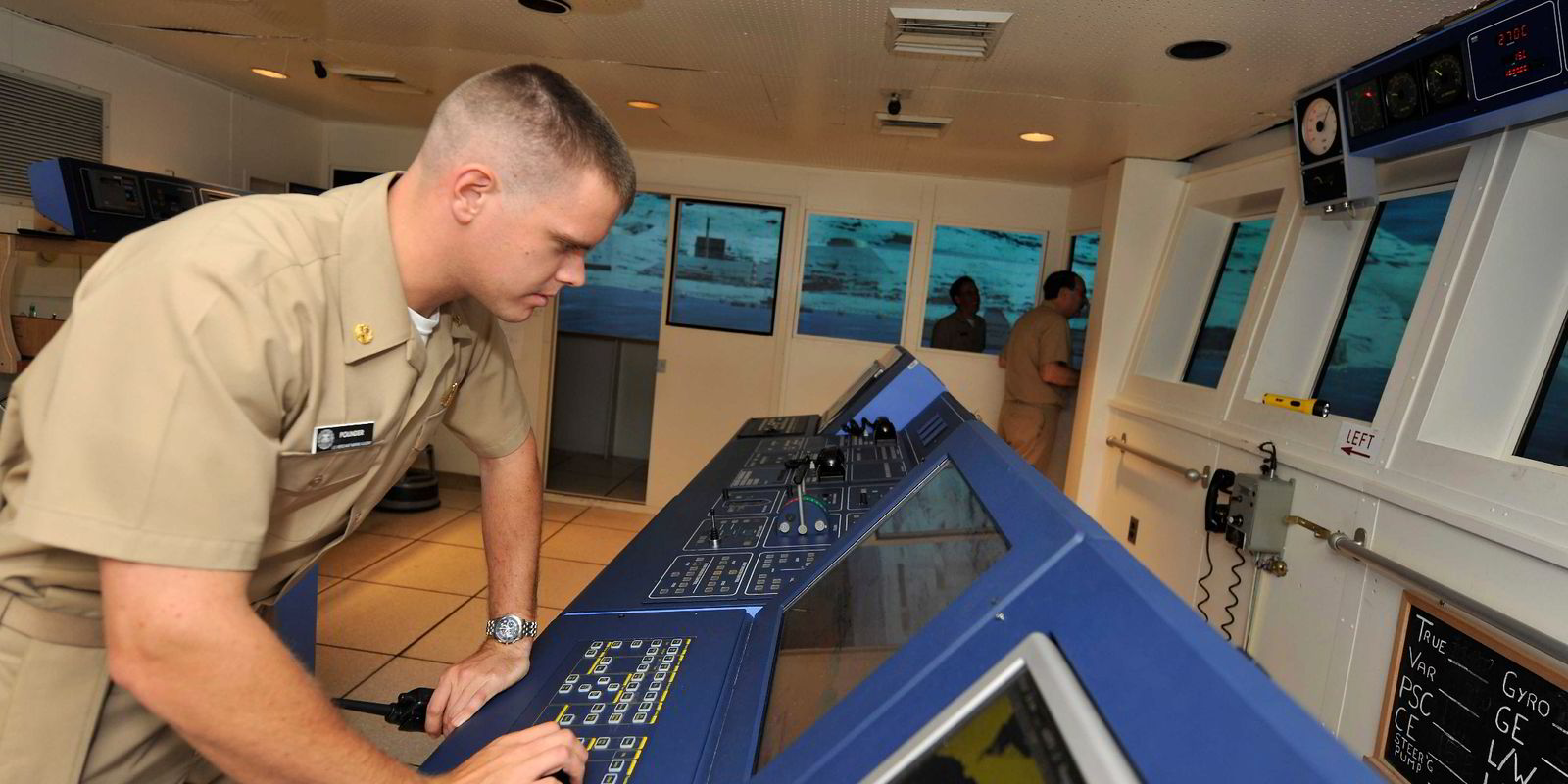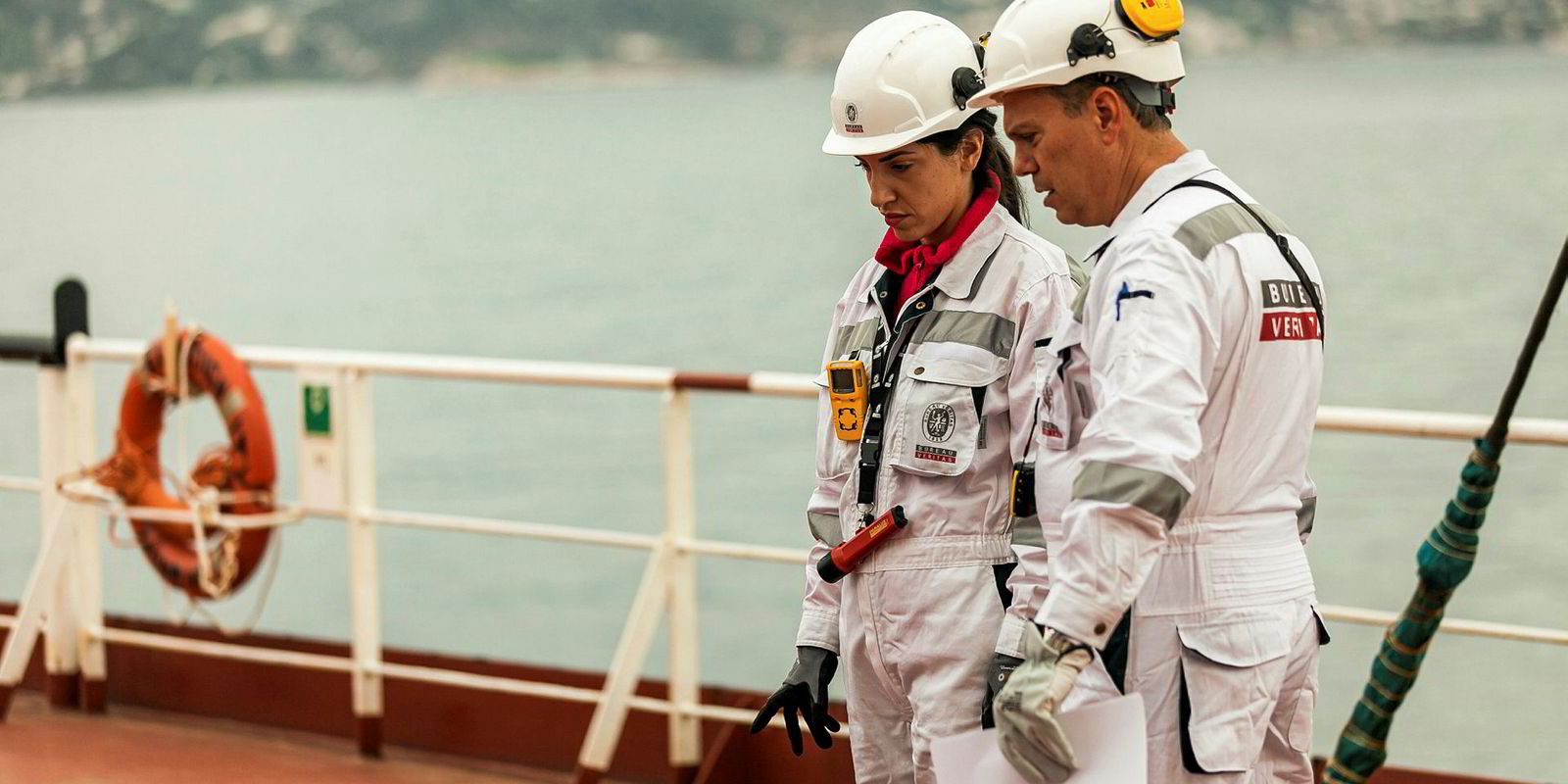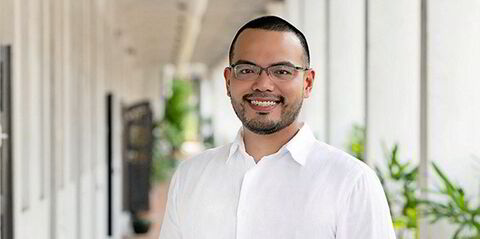It has been nearly two years since the premier maritime training academy in the US found itself at the centre of a controversy over reports of sexual assault and harassment.
The US Merchant Marine Academy (USMMA) is continuing to wrestle with the problem.
While acknowledging progress has been made, a government watchdog has identified a series of shortfalls in the way the 75-year-old institution, whose graduates include some of the top executives in US shipping, tackles sexual misconduct.
Yet the federal academy known in shipping circles as Kings Point, which is the name of the village it calls home at the western edge of New York state’s Long Island Sound, is not alone in having to tackle sexual violence on campus; so do universities of all types.
What’s a maritime academy — where men outnumber women in large proportions — to do to solve this problem?
At Kings Point, which is overseen by the US Maritime Administration (MarAd) within the Department of Transportation, officials have set up a sexual assault prevention and response programme and a “culture change plan”.
Last year, Congress ordered the department’s Office of the Inspector General (OIG), an independent body that audits and investigates agency programmes, to submit a report on the progress Kings Point has made.
During its review, the OIG turned to experts at the Centers for Disease Control and Prevention (CDCP), an agency whose public-health mandate is wider than its name suggests.
OIG officials found weaknesses in the infrastructure supporting the sexual assault programme, including shortcomings in policies, procedures and staffing.
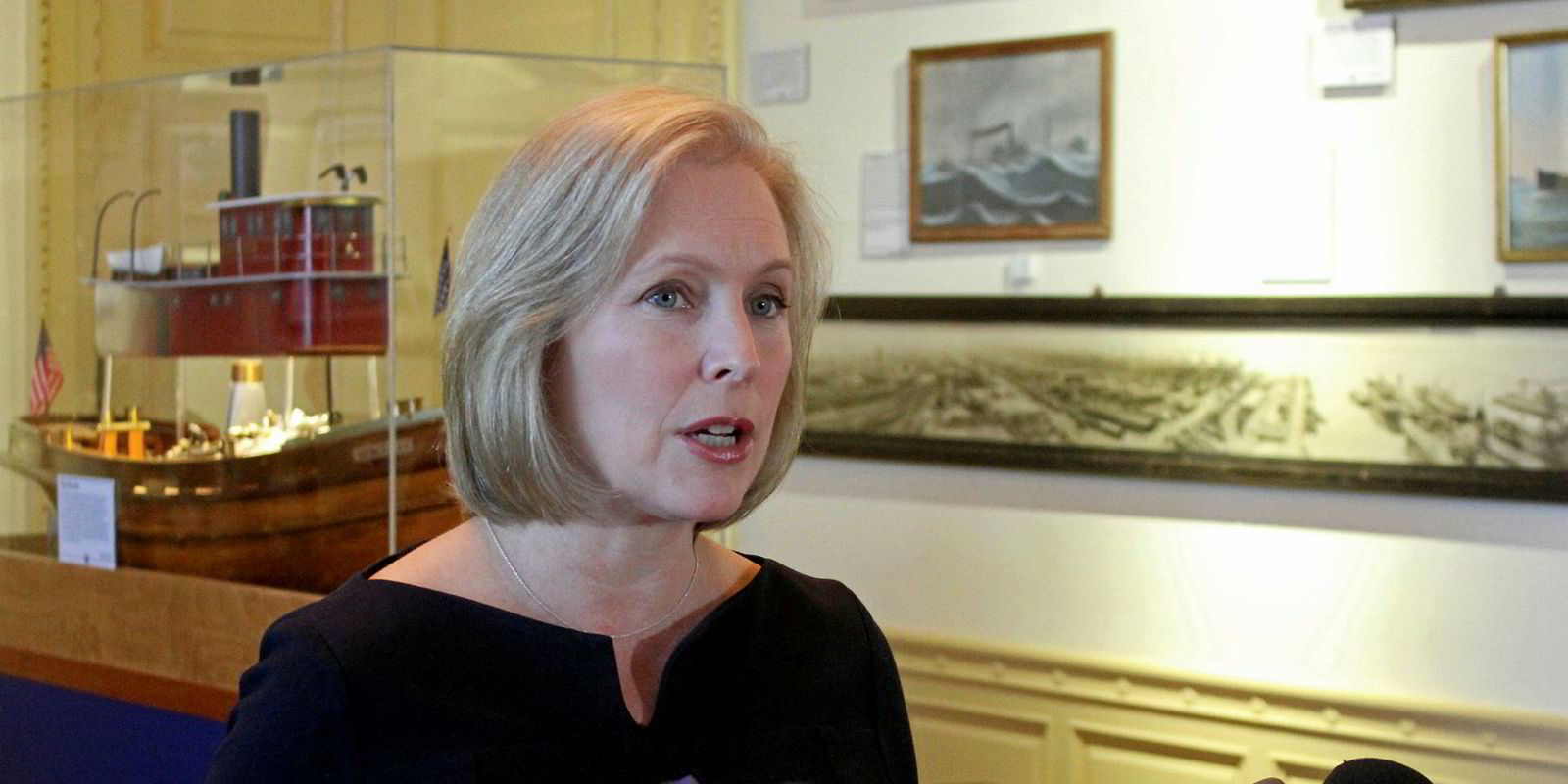
The report’s authors write that “critical gaps remain in the areas of comprehensive prevention and evaluation. For example, the 16 [Sexual Assault Prevention and Response] program policies and procedures are primarily response focused; thus, the Academy has not institutionalized prevention strategies.”
Among the problems, the academy failed to ensure that policies to prevent sexual assault are reinforced in the regulations that midshipmen, as students or cadets are referred to at the school, must follow.
Plus, the OIG report questions the methodology for collecting sexual harassment data at Kings Point.
The USMMA “lacks documentation related to reports of sexual harassment, which impacts its ability to provide survivor services and accurately assess its progress in addressing sexual harassment”, the report argues.
One problem identified in the review was that Kings Point was not following its own policies when sexual violence was reported.
“Specifically, incident reports did not consistently capture the alleged perpetrator’s name, if known, in part because there was no field on the form for doing so,” the report says. “An official attributed this to an oversight and said it was never intended to be left off the form.”
The OIG audit found that the academy and MarAd have fulfilled 45% of the 138 recommendations from reviews over recent years. But the report says the efforts have missed key target dates, and a risk-based approach was not used to set priorities for which actions should have been taken first.
And, the agency found, the school has not established sufficient oversight over the process and has had problems filling key staff vacancies.
Rear Admiral James Helis, a former army colonel with academic but not sea experience, who has been superintendent of the academy since 2012, told the USMMA Board of Visitors oversight panel in April this year that the well-being of midshipmen is a top priority. “Over the last year, we have made what we believe are significant efforts to continue to attack the problem of sexual assault, both on campus and on the Sea Year environment,” said Helis, according to Long Island’s Newsday paper.
Kings Point is one of seven merchant marine academies in the US, training civilian officers who serve on commercial and government ships, and who may be called on in times of war.
But it stands apart in key respects. It is the only maritime academy run by the federal government, as one of five service academies, also training commissioned officers for the military and coast guard. And it is the only maritime academy that provides sea time to midshipmen — the Sea Year — primarily by placing them on commercial and government ships, rather than its own training ship.
Reports of sexual harassment and sexual assault at Kings Point became the subject of heated debate in 2016.
A gender-relations survey of midshipmen revealed that 17.1% of women and 2% of men claimed to have been sexually assaulted. Some 63% of women and 11% of men said they had suffered sexual harassment, according to government reports. But far fewer midshipmen actually filed formal complaints alleging sexual misconduct.
To address the issue, the-then transportation secretary, Anthony Foxx, ordered measures that included a moratorium on Sea Years on US-flag commercial ships. That drew howls from parents, from seafarer unions and from many USMMA alumni, who claimed there was little evidence of a significant sexual violence problem at sea and that the academy’s real problem was a threat to its accreditation that was focused on other issues at the school.
Paul “Chip” Jaenichen, who was US maritime administrator at the time, told TradeWinds that extraordinary measures had already been taken by then, to no avail. “It hasn’t been able to move the needle,” he said in late 2016.
The election of Donald Trump has brought changes to the agencies overseeing Kings Point.
The new president appointed Elaine Chao — a former labour secretary and deputy administrator at MarAd, as well as the daughter of shipowner James Chao — as transportation secretary. She told Congress before her confirmation that the issues at the academy were among the first things she would tackle.
Rear Admiral Mark Buzby, a retired naval officer who graduated from the USMMA in 1978, later took the helm at MarAd.
Continued challenges were not slow in presenting themselves. The academy pulled out of last year’s college soccer season after several students were accused of sexually assaulting a first-year midshipman on a team bus, sparking an OIG investigation. Last month, the alleged victim filed a claim against the federal government, according to Newsday. He is seeking $5m in compensation.
In another case, however, a student suspended as a result of a sexual assault allegation fired back with legal action. The midshipman, named only as John Doe, filed a federal lawsuit in March asking a judge to overturn the suspension.
The academy had found the 22-year-old guilty of violating its regulations on sexual assault and dating violence after accusations that he had had sex with a woman who was too intoxicated to consent. He claimed that the woman had not only consented, but had also initiated sexual activities, and that by the time of the hearing, law enforcement had determined that there was “no probable cause to believe [he] engaged in non-consensual sexual activity”, according to court papers.
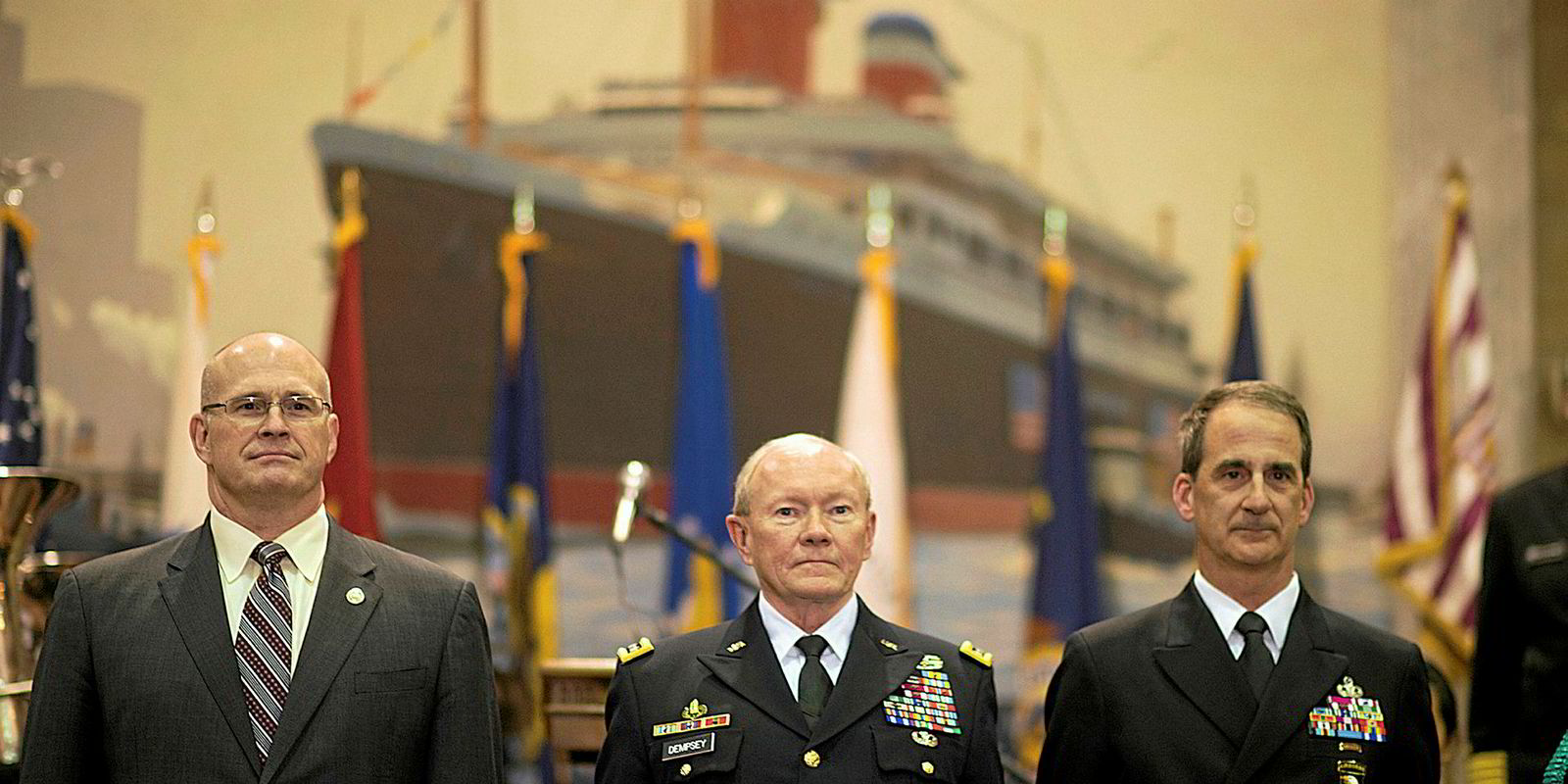
The midshipman’s punishment would in effect set his graduation back by a year.
In the hearing that led to his suspension, Helis had been “serving as prosecutor seeking a conviction, the ‘neutral judge’, the jury with an open mind, and the appellate panel asked to review the findings and punishment imposed”, wrote his lawyer, Gerald Lefcourt. “That such a process would fail to provide even the rudiments of due process should be obvious.”
But District Judge Joseph Bianco disagreed. In a 20 April decision, he rejected claims that the way Helis and the academy had carried out the hearing amounted to a lack of due process.
“None of these or plaintiff’s other objections to the hearing procedures, either individually or cumulatively, amount to the types of deprivations of due process that would lead to a finding of an unconstitutional proceeding,” the judge wrote. “As required, plaintiff was given a fair hearing, notice of the charges against him, and the opportunity to defend himself.”
Kings Point supporters have complained that the school has been unfairly singled out, as sexual violence is a problem on campuses across the country.
Studies estimate that 10% of American college women and 6% of men have been victims of sexual assault, and one in five college women in the country has experienced “attempted or completed” sexual assault, according to the CDCP. Women at universities are more likely than their non-college peers to be raped by men, the studies show.
Statistics available for the six other maritime colleges are not widely available, and the data may not show an apples-to-apples comparison with the USMMA.
The State University of New York Maritime College (SUNY Maritime) conducted a sexual violence prevention survey in which 9% of students said someone had “fondled, kissed or rubbed up against the private areas of their body without consent” in the past year, according to data obtained by TW+ through the state freedom of information law.
About 2% of students indicated they had experienced “sexual penetration without consent”, while 5% said they were forced to perform oral sex without consent. Around 28% of the respondents were female.
In another survey focused on the cadets’ summer at sea, no students reported experiencing sexual assault but 4% said they had been subjected to sexual harassment.

About 13% of the respondents were women. Of the academy’s 1,660 students, women make up 7.5%.
At California State University Maritime Academy, better known as Cal Maritime, 23.3% of cadets who participated in a survey reported experiencing sexual harassment during their time at the school, according to results of a 2014 survey obtained by TW+.
Just over 11% of respondents said they had experienced some form of sexual violence, defined as unwelcome sexual touching, sexual assault, sexual battery or rape.
“We’re all dealing with issues that are not isolated to this industry,” says Bobby King, director of public affairs at Cal Maritime. “People are more comfortable now coming forward and reporting things that are happening, and they’ve always been happening across all industries.”
Ingrid Williams, executive director of human resources at the school, says students and faculty undergo training activities, including online guidance for incoming students and more detailed face-to-face meetings to explain the process for reporting sexual misconduct. Cadets also undergo special training before going on cruises on the academy’s training ship, Golden Bear.
Williams is responsible for the academy’s compliance with Title IX, the US gender discrimination laws that include protections against sexual assault and harassment.
“I also have conversations with the other maritime academies in terms of best practices in what we do to try to prevent sexual misconduct on campuses and on the ships,” she says.
Eighteen per cent of Cal Maritime’s students were women.
Massachusetts Maritime Academy has not yet responded to a TW+ request for survey data. No recent survey was carried out by Great Lakes Maritime and Texas A&M Maritime Academy. Maine Maritime Academy has done surveys since 2016 but said too few cadets responded to achieve a statistically significant response.
Admiral Jerry Achenbach, superintendent at Great Lakes Maritime Academy in Michigan, says cadets receive Title IX training on sexual misconduct reporting at the start of their first year and before they sail on the training ship State of Michigan.
Students are given information about confidential reporting, then Achenbach asks all students to send him an email to find out if there are any problems during their sea time. The names of those who do not email him are referred to dean of students Lisa Thomas, who handles Title IX issues.
Achenbach says that although the academy is not compiling sexual misconduct data in a formal survey, it is still collecting information through these mechanisms.
And it is ensuring that cadets know that if they want to get off a vessel, they can do so with no questions asked, and there are mechanisms to report incidents outside of the chain of command.
“Our process ensures every cadet understands... that sexual harassment and a hostile workplace is unacceptable,” Achenbach says.


